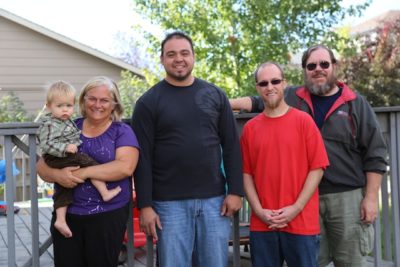
There are two kinds of Christians in this world: those who acknowledge that at times they have doubted their faith…and liars.
Of course, Christianity — and religion in general — do not have a monopoly on doubt. Some philosophers have doubted the existence of the external world (solipsism). And famous philosophers like Descartes and Sartre even doubted their own existence.
Doubt is a part of the human condition. It is normal and healthy to question things we believe. We are finite, contingent beings with limited knowledge and this makes doubt inevitable. The Apostle Paul famously and poetically described it this way, “For now we see only a reflection as in a mirror; then we shall see face to face. Now I know in part; then I shall know fully, even as I am fully known” (1 Corinthians 13:12).
The Bible is full of godly men and women of great faith who also doubted. Examples are Abraham (Genesis 17:17), Sarah (Genesis 18:2-15), Moses (Genesis 3:11-4:14), Aaron (Exodus 32:1-4), Gideon (Judges 6:36-40), David (1 Samuel 27:1), Elijah (1 Kings 19:9-10), Zachariah (Luke 1:18-20), John the Baptist (Matthew 11:2-3), Peter (Matthew 14:30-31), and Thomas (John 20:26-27).
In fact, doubt and faith go hand in hand, not just in the spiritual realm, but also in everyday life. I often have some doubts about flying on planes. But I decide I’m going to trust the plane anyway and get on in spite of my doubts.
In the same way, faith in God’s promises isn’t action in the absence of doubt, but action in the presence of doubt. We don’t know everything there is to know about God. But we do know enough about what he has done in history to trust in his faithfulness.
So what about our doubts? What do we do with them?
Here is what I do. I rename my doubts “interesting questions” and file them away under that category in the back of my brain. Then I simply wait. While I wait, I sometimes pull one of my “interesting questions” out of my “interesting questions” drawer and turn it around in my mind for a while, looking at it from different angles. When I’m done, I stick it back in my mental drawer.
What often happens is that, over time, the “interesting questions” get answered, either from my own contemplation or from some external source.
For example, when I was a young boy I learned that God created the stars as a “lesser light” than the sun so we could see at night. That didn’t make sense to me because the stars at night were not all that bright – especially in Los Angeles!
But one day I was sitting in my astronomy class at UCLA when the professor made this comment: “If it weren’t for interstellar dust, we could read our newspaper (We read newspapers back then.) at night by the light of the Milky Way.”
Voila! Apparently, after the fall, the resultant interstellar dust made evenings east of Eden a lot darker.
The point is, we shouldn’t ignore our doubts. But we shouldn’t be paralyzed by them either. We can go about our lives trusting in God who has revealed himself in our personhood, in our conscience, in creation, in history, in the Bible, and in Jesus Christ. We do not know enough to not have doubts. But we do know God well enough to have confidence that our doubts will ultimately be resolved.
This post first appeared in NewCommandment.org.

Since 2003 New Commandment Men’s Ministries has helped hundreds of churches throughout North American and around the world recruit teams of men who permanently adopt their widowed and single parents in their congregations for the purpose of donating two hours of service to them one Saturday morning each month. We accomplish this with a free training site called New Commandment Men’s Ministry
Learn how to mobilize your men’s ministry to meet every pressing need in your church here.
_______________________________________________________________

Learn how to form teams of men for every widow, single mom
and fatherless child in your church at NewCommandment.org.
_______________________________________________________________